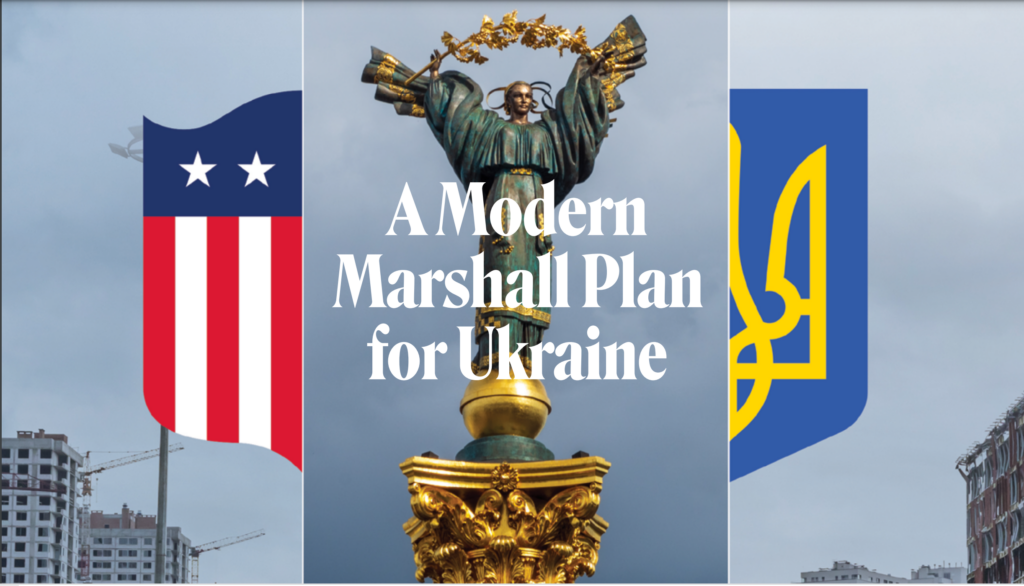 German Chancellor Olaf Scholz and EU Commission President Ursula von der Leyen recently appealed for a “Marshall Plan” to rebuild war-scarred Ukraine, Deutsche Welle reports.
German Chancellor Olaf Scholz and EU Commission President Ursula von der Leyen recently appealed for a “Marshall Plan” to rebuild war-scarred Ukraine, Deutsche Welle reports.
Unlike its predecessor, which rebuilt Western Europe’s shattered economies, a modern Marshall Plan for Ukraine should actively engage Ukrainian civil society organizations (CSOs), says a new report from the German Marshall Fund.
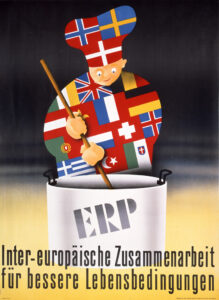 Freedom House, which rates Ukraine’s democracy as “partly free,” notes that it is “the flourishing of civil society, major reforms since the Euromaidan revolution, and a vibrant media [that] demonstrate Ukraine’s promise as an open and pluralistic democracy,” GMF’s Heather A. Conley writes. And civil society would be “a key pillar of and, vitally, a reinforcing transparency mechanism for Ukraine’s reconstruction and long-term recovery,” she adds:
Freedom House, which rates Ukraine’s democracy as “partly free,” notes that it is “the flourishing of civil society, major reforms since the Euromaidan revolution, and a vibrant media [that] demonstrate Ukraine’s promise as an open and pluralistic democracy,” GMF’s Heather A. Conley writes. And civil society would be “a key pillar of and, vitally, a reinforcing transparency mechanism for Ukraine’s reconstruction and long-term recovery,” she adds:
Since Russia’s first invasion in 2014, Ukrainian civil society organizations have demonstrated growing capacity and tenacity. They are providing emergency assistance for internally and externally displaced people as well as to victims of the conflict in war zones, actively combatting disinformation, documenting human rights abuses and atrocities, supporting the army, and scrutinizing government actions. Ukraine’s CSOs [recognized by the National Endowment for Democracy’s 2022 Award ] are regarded by many at home and abroad as trusted watchdogs that can help ensure that the health and integrity of anti-corruption governmental bodies are maintained.
Ukrainians will be understandably sensitive about foreign interference in their reconstruction, adds Barry Eichengreen, Professor of Economics at the University of California, Berkeley, and a former senior policy adviser at the International Monetary Fund. But foreign oversight is the price of foreign aid, particularly on the scale that Ukraine will require. The government in Kyiv can provide reassurance by enhancing the transparency of its spending, for example by expanding its online public procurement portal ProZorro, he writes for Project Syndicate.
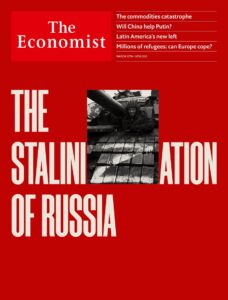 The U.S. government should actively assist the Russian exile community, including journalists, activists, and other Russians who support a freer and more democratic Russia, say Andrea Kendall-Taylor and Michael Kofman. It can do so by providing U.S.-based professional fellowships for persecuted human rights defenders and journalists, for example, and addressing shortcomings in the implementation of anticorruption and sanctions policies that cause collateral damage to oppressed civil society actors, they write for Foreign Affairs.
The U.S. government should actively assist the Russian exile community, including journalists, activists, and other Russians who support a freer and more democratic Russia, say Andrea Kendall-Taylor and Michael Kofman. It can do so by providing U.S.-based professional fellowships for persecuted human rights defenders and journalists, for example, and addressing shortcomings in the implementation of anticorruption and sanctions policies that cause collateral damage to oppressed civil society actors, they write for Foreign Affairs.
Changing Russia’s current mindset will be more difficult than giving up on discredited communist delusions in the Perestroika time, argues Georgian analyst Ghia Nodia. Putin’s ideology has captured the hearts and minds of the critical mass of Russians with a curious mélange of nostalgia for past imperial grandeur and a partly-real, partly-affected “post-colonial” ressentiment against the global domination of the liberal West.
The pattern of invading neighboring countries that climaxed in the ongoing Ukraine war suggests that Russians were never satisfied with their post-Cold War status. The soft power of the liberal and prosperous West will not be sufficient to overcome that, he writes for Persuasion.
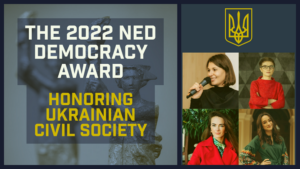 This historical experience — of statelessness and struggle, repressive external rule and hard-won independence — has shaped Ukraine into the nation we see today: opposed to imperialism, united in the face of the enemy and determined to protect its freedom, notes historian Olesya Khromeychuk, (@OKhromeychuk), the director of the Ukrainian Institute London and the author of “The Death of a Soldier Told by His Sister.” For the people of Ukraine, freedom is not some lofty ideal. It is imperative for survival, she writes for the Times.
This historical experience — of statelessness and struggle, repressive external rule and hard-won independence — has shaped Ukraine into the nation we see today: opposed to imperialism, united in the face of the enemy and determined to protect its freedom, notes historian Olesya Khromeychuk, (@OKhromeychuk), the director of the Ukrainian Institute London and the author of “The Death of a Soldier Told by His Sister.” For the people of Ukraine, freedom is not some lofty ideal. It is imperative for survival, she writes for the Times.
Putin still trots out the golden oldies of Soviet talking points about the West’s “racist and neocolonial” imperialism. He claims that Russia and China provide an alternative to this approach to the world order, Jonah Goldberg writes for the LA Times. What he doesn’t do is offer an actual alternative to Western values. He uses liberal labels to justify his brutal will to power. Maybe that’s because those values really are universal now.
There is clearly a global network, or a kind of global front, of what I would call ultranationalist, authoritarian-leaning politicians, says analyst Matt Duss. We know who they are: Putin, Orbán, Bolsonaro. They work very closely with oligarchs within their own countries, and with oligarchs who work across borders.
Let’s think about the values that progressives support: solidarity, dignity, security, international law, he tells the New Yorker’s Isaac Chotiner. My argument was, and is, that supporting the defense of Ukraine is something that upholds these values.
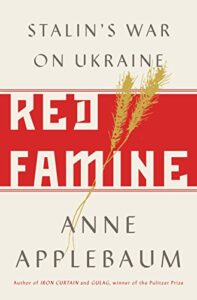 Freedom is more important than stability, according to Ukrainian author and public intellectual Andrey Kurkow. Genuine dialogue and exchange build bridges between islands of democracy, allowing strangers to become close friends, he said in his recent Halldor Laxness lecture in Iceland. Today the entire democratic world is helping Ukraine in this war – helping with weapons and humanitarian aid. But there is another way to help that does not require funding, he added:
Freedom is more important than stability, according to Ukrainian author and public intellectual Andrey Kurkow. Genuine dialogue and exchange build bridges between islands of democracy, allowing strangers to become close friends, he said in his recent Halldor Laxness lecture in Iceland. Today the entire democratic world is helping Ukraine in this war – helping with weapons and humanitarian aid. But there is another way to help that does not require funding, he added:
Ukrainian history and culture are still little known in Europe and in the world. So, I ask you to find and read non-fiction books about the history of Ukraine. Such as Anne Applebaum’s “Red Famine”, Timothy Snyder’s “Bloodlands” or Serhiy Plohiy’s “Gates of Europe”. Find books by Ukrainian writers. Take the time to learn a little more about Ukraine than you know now!
(HT: Robert Homans @rhomansjr)
When reading Kurkov’s lecture, I was reminded about the series of movies made in 1943 during WW-II, collectively called “Why We Fight,” Robert Homans adds. The director was Frank Capra. The co-director was a Ukrainian, Anatole Litvak. This is the trailer (below) for the “Battle of Russia,” one of the movies in the “Why We Fight” series, primarily covering the Siege of Leningrad. Perhaps the Russians should re-learn their own history, especially relating to what happens when an aggressor targets
The Latest Denys reports that almost 1,000 Russian soldiers were killed yesterday, about half of them in front of Donetsk City during an attack by around 200 Russian armored vehicles. According to Denys, the Russians were chopped to pieces by Ukrainian artillery.







